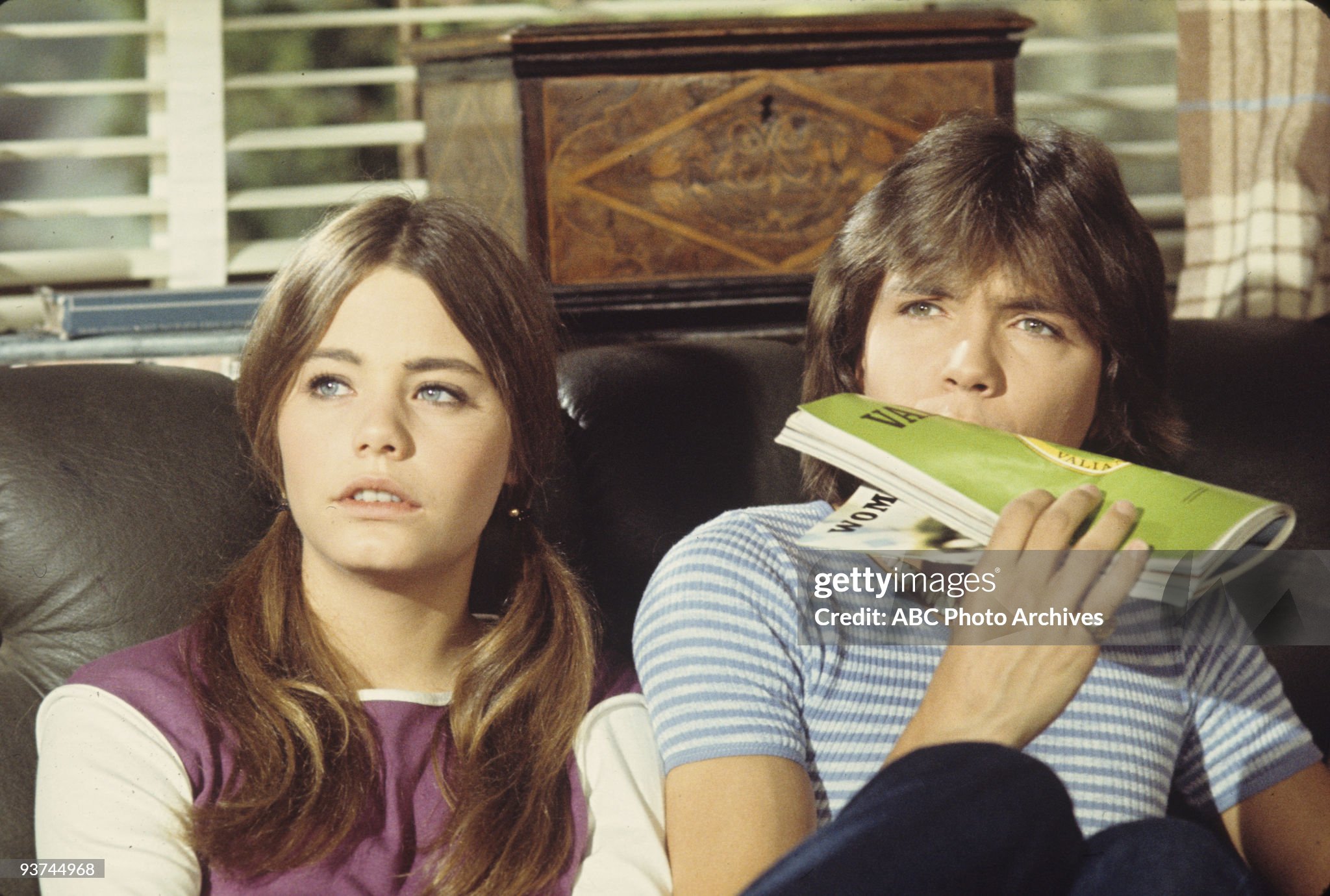
A small, rain-washed promise—The Partridge Family reminding us in “Rainmaker” that sometimes love’s bravest act is simply to show up with shelter.
Let’s pin down the essentials before the memories roll in. “Rainmaker” is an album cut—not a single—on The Partridge Family Sound Magazine, released in August 1971. On the original LP it’s side one, track five, a brisk ~2:27 that keeps its feet light. The song was written by the familiar Partridge hit-factory trio Wes Farrell, Jim Cretecos, and Mike Appel; it was tracked during the album’s first studio day on May 4, 1971, at United Western in Hollywood. Because it wasn’t issued as a 45, it posted no standalone chart position; its parent album carried the commercial story—Top LPs No. 9 in late September 1971 with gold certification soon after.
A quick disambiguation for collectors: this “Rainmaker” is not the Harry Nilsson tune from 1969. The Partridges’ song is a different composition entirely, penned by Farrell/Cretecos/Appel for the series’ studio project. If you’ve ever wondered why you hear two very different “Rainmakers” on ’70s playlists, that’s the reason.
On the record, you hear the seasoned Los Angeles machine working at full warmth. Lead vocal sits with David Cassidy, ringed by the Ron Hicklin Singers, over a rhythm section of Wrecking Crew mainstays—Hal Blaine on drums, Max Bennett on bass, Larry Knechtel and Mike Melvoin on keys, Dennis Budimir and Louis Shelton on guitars. There’s nothing flashy here; producer Wes Farrell keeps the arrangement clean and close to the heart, the way a good umbrella keeps rain off your shoulders without announcing itself.
On-screen life: the song didn’t just live on vinyl. It turns up in Season 2, Episode 12 (“Guess Who’s Coming to Drive?”, December 10, 1971)—one of those montage moments where the show’s stories and the LP tracks braided together in living rooms across America. For many fans, that episode placement is why the tune still brings back a flood of small domestic images—color TV glow, shag carpet underfoot, a family room that felt like safe harbor.
What does “Rainmaker” say? The lyric speaks in gentle plain-talk: a chance meeting “with the rain,” a memory that slips away as quickly as the storm clears, and a refrain that asks—almost prays—for the weather (and the woman who loved it) to come back around. It’s a modest pop poem about shelter and longing. No melodrama, just the tender arithmetic many of us learn with time: some people aren’t ours to keep; the best we can do is be ready when the clouds gather, with kindness in hand. Cassidy’s read is unhurried, neighborly; those stacked harmonies arrive like a sunbreak at the edge of the chorus and then step back, letting the feeling breathe.
Placed inside Sound Magazine, the cut helps explain why this particular Partridge LP enjoys such affectionate standing. The album is their most consistently crafted set—hits on the marquee, deep cuts doing quiet work—and “Rainmaker” is one of the spots where you can hear the project’s ethos in miniature: professional, personable, and built to be lived with, not merely blasted once and forgotten. It’s the difference between a novelty and a companion. The chart line belongs to the album—Billboard Top LPs No. 9, RIAA Gold—but the emotional line belongs to songs like this one, which turned a TV tie-in into a friendly habit for a generation of listeners.
If you’ve logged a few decades since that first spin, the track’s grace may feel even clearer now. The rhythm section moves like windshield wipers—steady, never showy. Guitars sketch little glints of light, as if bouncing off wet pavement. The melody doesn’t beg for attention; it invites it. And that invitation is where the nostalgia lives: the recognition that not every love song has to be a grand proclamation. Sometimes the truest ones are little shelters—a hand offered when the weather turns, a chorus you can lean against while the storm passes.
Key facts for the scrapbook: Artist: The Partridge Family. Song: “Rainmaker.” Album: Sound Magazine (Bell, Aug. 1971), side one, track five; length ~2:27. Writers: Wes Farrell / Jim Cretecos / Mike Appel. Recorded: May 4, 1971 (United Western, Hollywood). Personnel (album): David Cassidy lead; Ron Hicklin Singers backgrounds; rhythm section including Hal Blaine, Max Bennett, Larry Knechtel, Mike Melvoin, Dennis Budimir, Louis Shelton. Single? No; album peak Billboard Top LPs No. 9, certified Gold. TV use: featured in Season 2, Episode 12, “Guess Who’s Coming to Drive?”.
Play it again and see what returns. Not just the tune—the feeling of being looked after by a small song that asks for nothing and offers everything that matters: a little cover, a little patience, and the quiet hope that what left with the rain might one day find its way back.